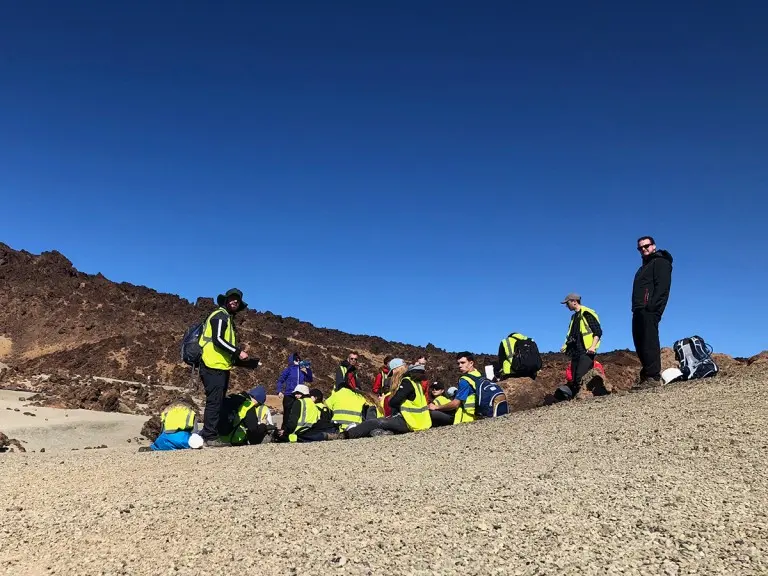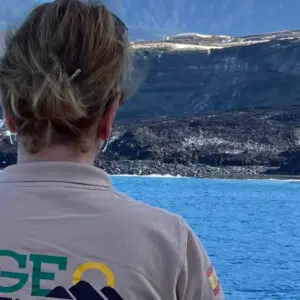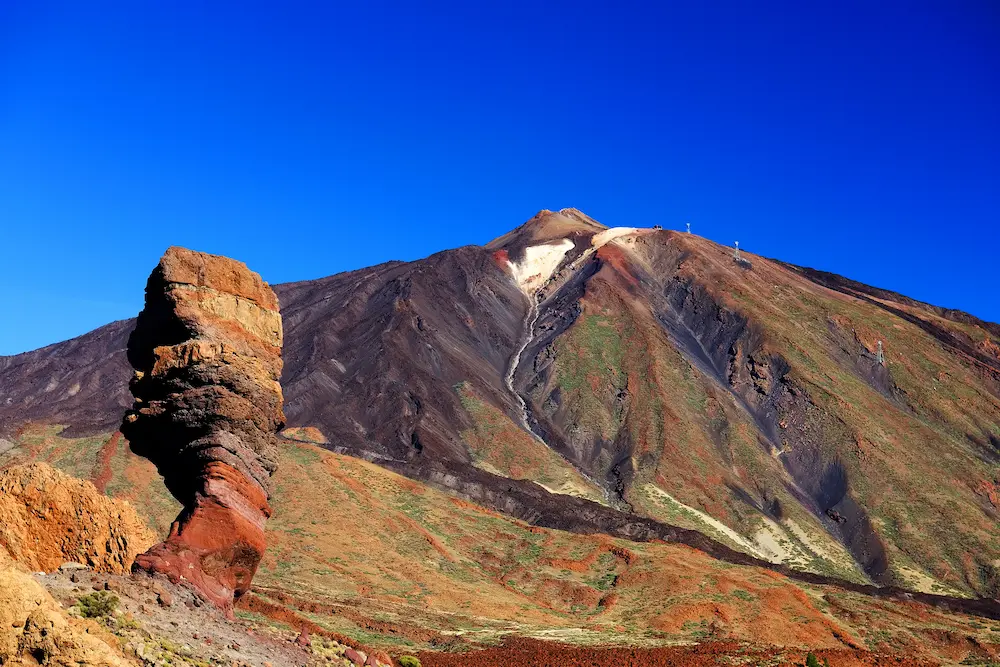Based in the Canary Islands and registered in the UK for full ABTA protection, we design and deliver sustainable, academically robust field trips and specialist training programmes. Alongside our group trips, we publish independent, open-access research and multimedia resources to support local residents, educators, and scientists worldwide.
Whether you’re organising a university expedition, joining our field school, or exploring how volcanic landscapes shape communities, GeoTenerife helps you experience, understand, and share the stories written in our islands.
What We doThree Core Pillars

Field Trips & Experiences
Unique, tailor-made educational journeys for universities, schools, and nature groups.
From volcanic landscapes to marine ecosystems, our expert-led trips combine safety, academic rigour, and unforgettable discovery in collaboration with local and national experts and institutions

International Field School
Develop practical, career-focused skills through our immersive training programmes.
Join VolcanoCamp, MarineSciCamp, GeoIntern or HydroCamp and gain hands-on experience in field monitoring/research, environmental communication, and sustainability
Scholarships are available to support wider participation.

Research and Open Access
Open knowledge to foster informed, resilient communities and visitors to the island
Our open access VolcanoStories project is funded by GeoTenerife. Our work is independent and resident focussed.
We work in collaboration with local, national and international experts and institutions. We research topics raised to us by the local community: the eruption of the 2021 Tajogaite volcano and recovery in La Palma; building volcanic resilience and sustainable tourism.
We are a member of the 20-strong international public/private GENESIS consortium funded by the EU’s Horizon Project to research nature based solutions for climate resilience in Atlantic islands.
Access reports, datasets, interviews, and documentaries designed to inform, educate, and inspire.
Quick accessKey Links for Residents, Visitors and Researchers
To access key information during an emergency or big event follow our Urgent Events timeline when activated.
To know more about volcanic activity in the Canary Islands see our Volcanic Readiness Project.
To follow the debate on tourism protests and local calls for a more sustainable model see our Sustainable Tourism Project.
OutreachSpreading the knowledge
- Co-organise the annual International VulcanaSymposium with IEO-CSIC which showcases Canarian research on Submarine Volcanoes. It is a free, open-access event, streamed internationally. All recorded sessions are published on our website with bilingual transcripts.
- Self-funded and produced two award winning documentaries on the eruption and reconstruction in La Palma: see Lava Bombs.
- Present, participate and run workshops in international science conferences, including IAVCEI, Cities on Volcanoes, EGU, VMSG, EUSEA and the Tajogaite Eruption International Conference
- Support, participate and present at local events including: World Water Day workshops in La Palma; La Laguna Naturalmente Segura with Volcanes de Canarias and Canarian Science Week.
- Interviews for local, national and international print and broadcast media including TVE, La Sexta, TV Canaria, BBC, Channel 4, ITV and CNN.
Latest newsStay up to date with our latest field schools, publications, and community initiatives
We regularly address local concerns raised via our online FORUM through longer form Opinion Pieces, in collaboration with leading experts and institutions. Our independence means we can tackle tough topics at the boundaries of stakeholder communication.
We follow the reconstruction in La Palma with monthly updates.
We activate our “Urgent Events” news hub resource during emergencies to support official messaging and collate helpful resources for residents and visitors.
Want to stay up to date with our latest field schools, publications and community initiatives?
Our quarterly VolcanoStories Digest summarises our outreach, resources and publications.
Ongoing Collaborators
Our work is possible thanks to our ongoing collaborations with extraordinary scientists and institutions.
You can meet our regular collaborators.
Featured Programmes
VolcanoCamp
Field training in volcanic monitoring, hazard assessment, and community engagement.
Learn directly from experts in one of the world’s most dynamic geological settings.
MarineSciCamp
Dive into marine science and conservation in the Canary Islands.
From field sampling to data analysis, gain vital experience for environmental careers.
Geo Intern
Applications Open Soon.
HydroCamp
Custom Field Trips
Research & open accessOpen Knowledge for an informed, resilient community
Through VolcanoStories, GeoTenerife shares accessible research on volcanic risk, recovery, and sustainability. Our resources — including reports, oral histories, and teaching materials — support academics, journalists, students, and local residents alike.
Explore our growing library and see how science and storytelling come together to strengthen understanding and preparedness across the islands.
Why choose GeoTenerifeWhen you work with GeoTenerife, you support both education and community resilience in the Canary Islands
Trusted & Protected
ABTA member, offering full financial protection.
Local Expertise
Headquartered in Tenerife, with local, bilingual staff and regional partners.
Academic Integrity
Designed in collaboration with leading universities and researchers.
Sustainability Focus
Committed to responsible travel and local collaboration.
Inclusive Opportunities
Scholarships and accessible resources for all.
International collaboration
Our work fosters wide international collaborations with a Canarian focus.

